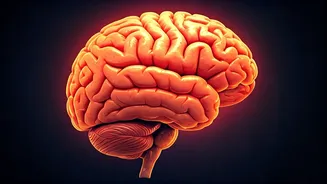The Elusive Deficiency
Vitamin B12 deficiency is a significant concern that often goes undetected because its symptoms are easily confused with other conditions. The body requires
B12 to produce red blood cells and maintain healthy nerve function, making it essential for overall wellbeing. Unfortunately, the symptoms can range from subtle to severe, including fatigue, weakness, memory problems, and even neurological issues. These symptoms frequently mirror the effects of aging or even depression, leading to misdiagnosis or delayed treatment. This underscores the need for proactive awareness and understanding of the unique signs of this deficiency.
Mimicking Mood Disorders
One of the key challenges with B12 deficiency is its ability to mimic mood disorders such as depression. Many individuals experiencing a B12 deficiency will report feelings of persistent sadness, low energy, and a lack of interest in activities they once enjoyed. These feelings may be accompanied by difficulty concentrating and making decisions, further reinforcing the impression of depression. This can make it difficult for individuals to realize that the root of their issues might not be primarily psychological. Early detection of B12 deficiency, through proper testing and attention to specific physical symptoms, can lead to accurate treatment and a better overall outcome.
Masking as Aging
The symptoms of B12 deficiency also frequently mirror those of natural aging. Forgetfulness, reduced reflexes, and a decline in physical stamina are all common complaints associated with aging, but can also be markers of B12 insufficiency. This overlap often results in older individuals dismissing their symptoms as an inevitable part of growing older, rather than seeking medical help. Recognizing the subtle differences between normal aging and B12 deficiency can be crucial. For instance, the onset of balance problems, tingling sensations in the extremities, or persistent headaches could be suggestive of underlying B12-related issues that warrant attention and investigation.
Hidden Signs Uncovered
Beyond depression-like symptoms and age-related signs, there are other hidden indicators of B12 deficiency. A sore or inflamed tongue (glossitis) can be an early sign, as can unexplained tingling or numbness in the hands and feet. Other less obvious signals include vision changes, such as blurred vision or double vision, and changes in gait or coordination. Individuals may also experience digestive issues, like loss of appetite or constipation. Since these signs may appear in different combinations and can vary from person to person, understanding the entire range of possibilities is key to quick detection and early treatment.
Addressing the Issue
Once a B12 deficiency is suspected, proper diagnosis is essential. Blood tests, including complete blood counts (CBC) and B12 level assessments, are used to measure the levels in the body. Treatment typically involves B12 injections or high-dose oral supplements. Dietary adjustments may also be advised, as B12 is naturally found in animal products. Regular monitoring of the B12 levels is essential to ensure that the treatment is successful, and follow-up tests are regularly conducted to evaluate its effectiveness. Those with persistent symptoms should consult a healthcare provider for personalized guidance and treatment.
























